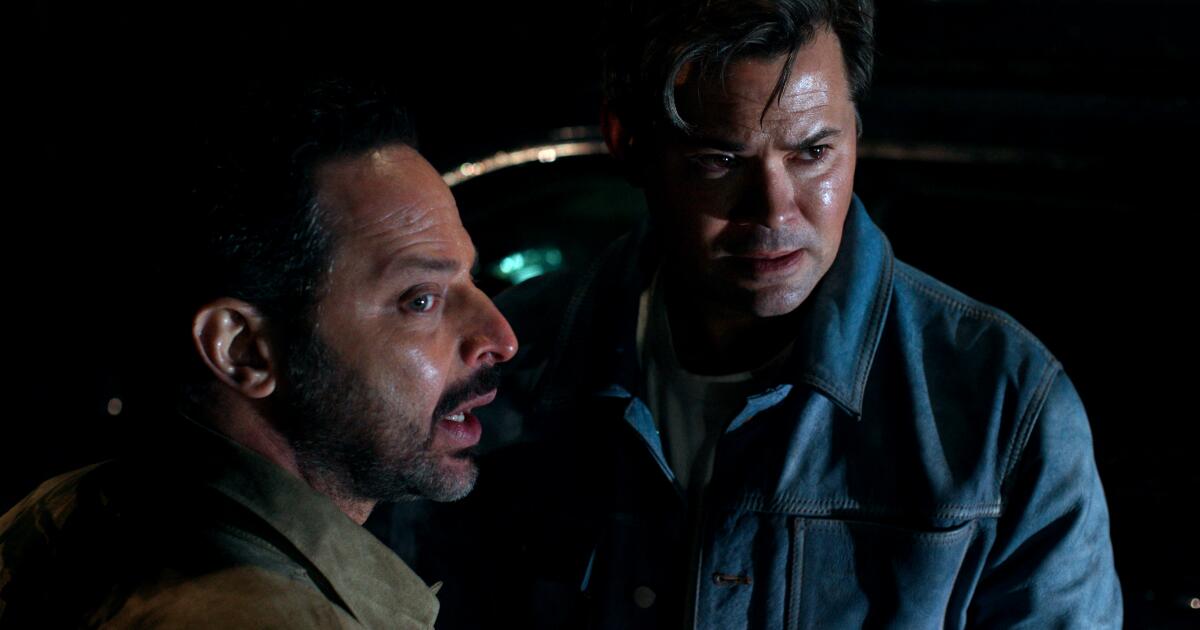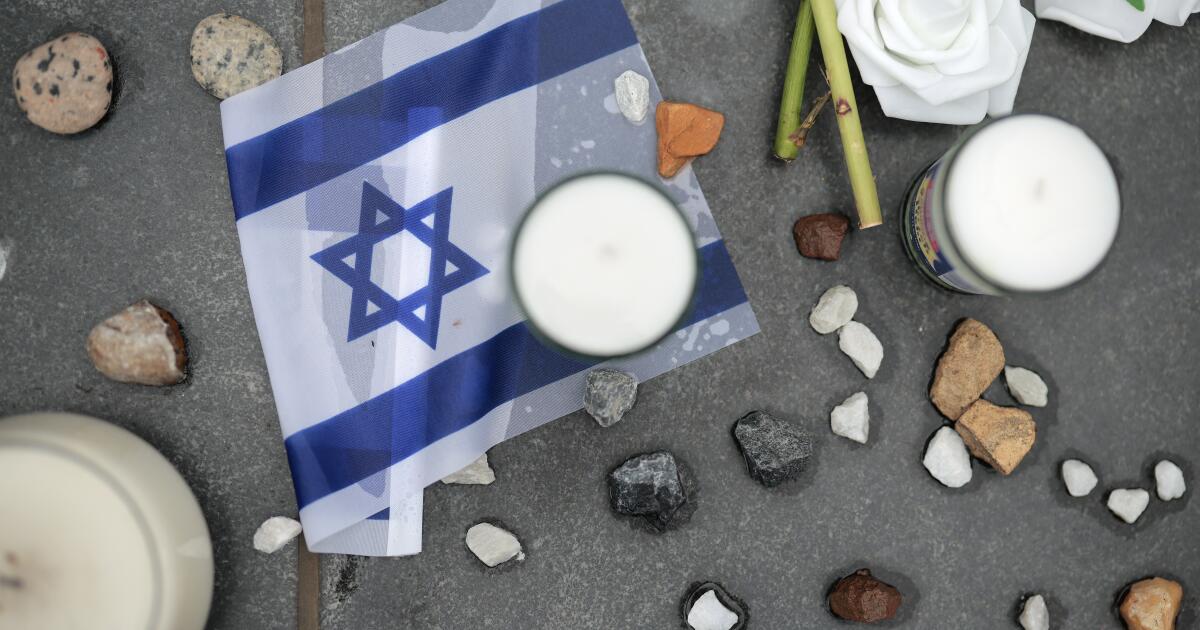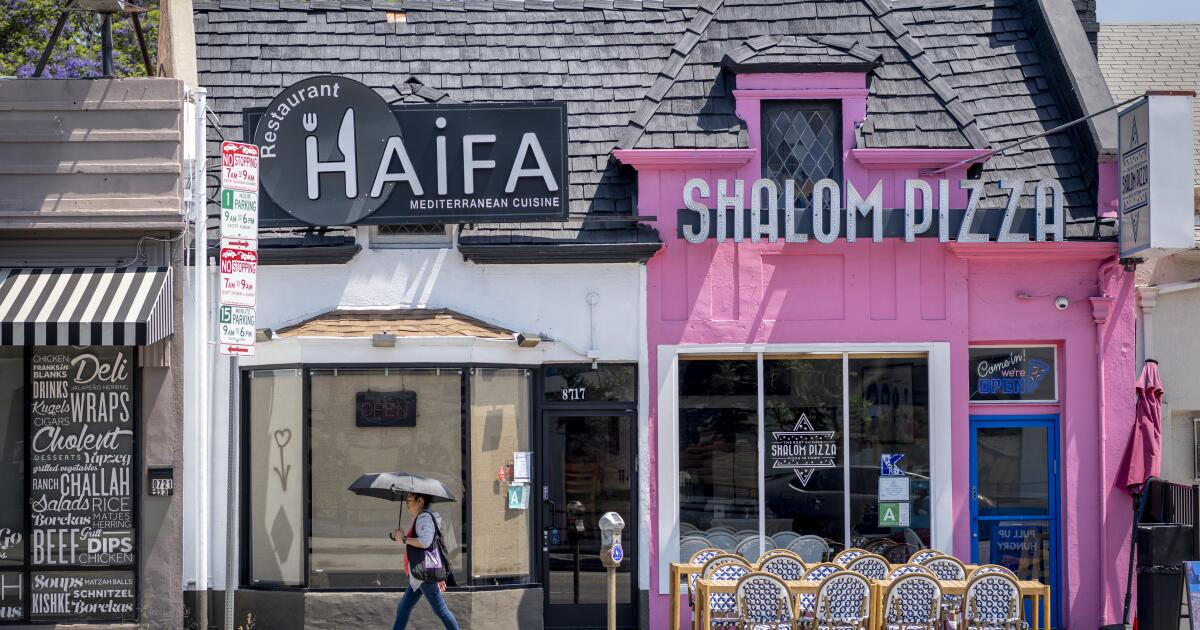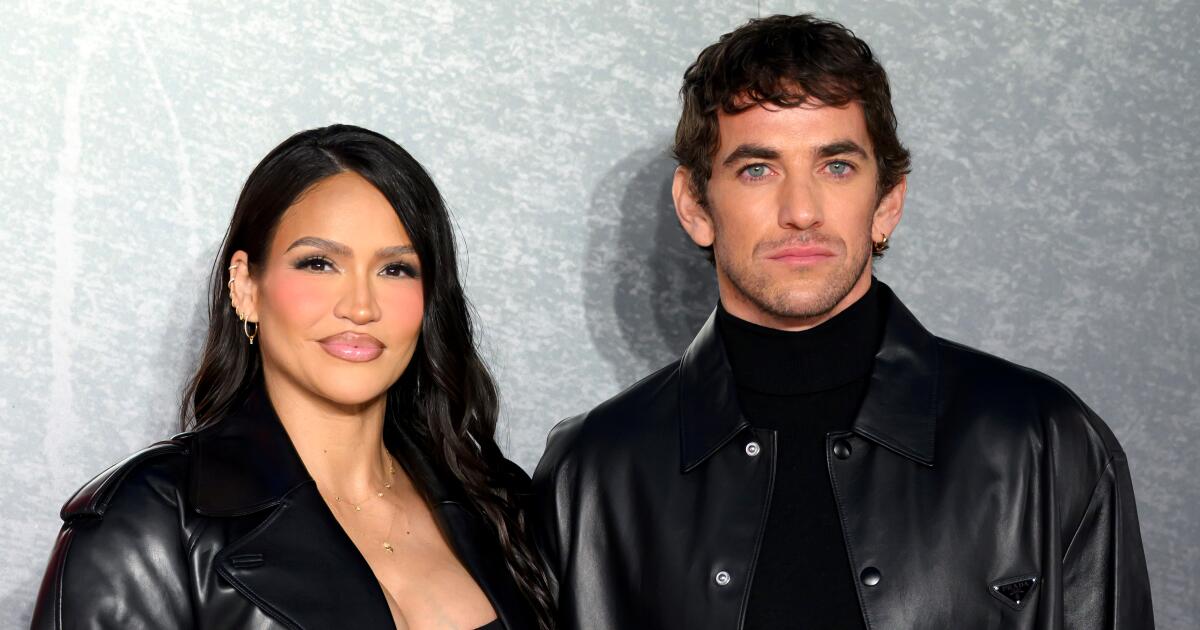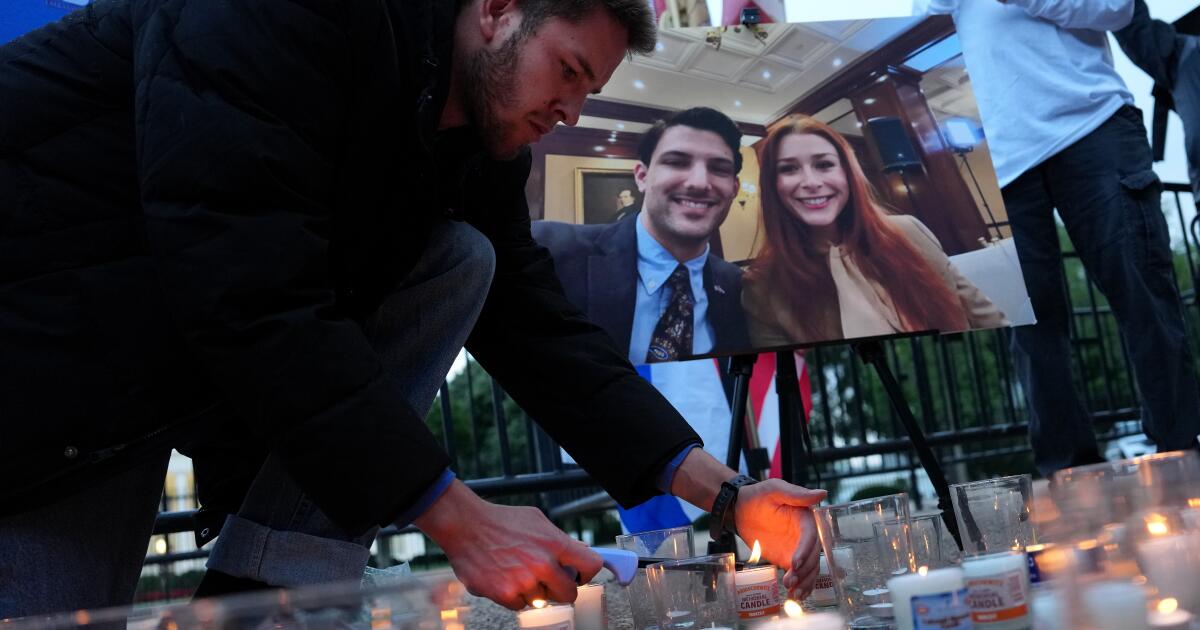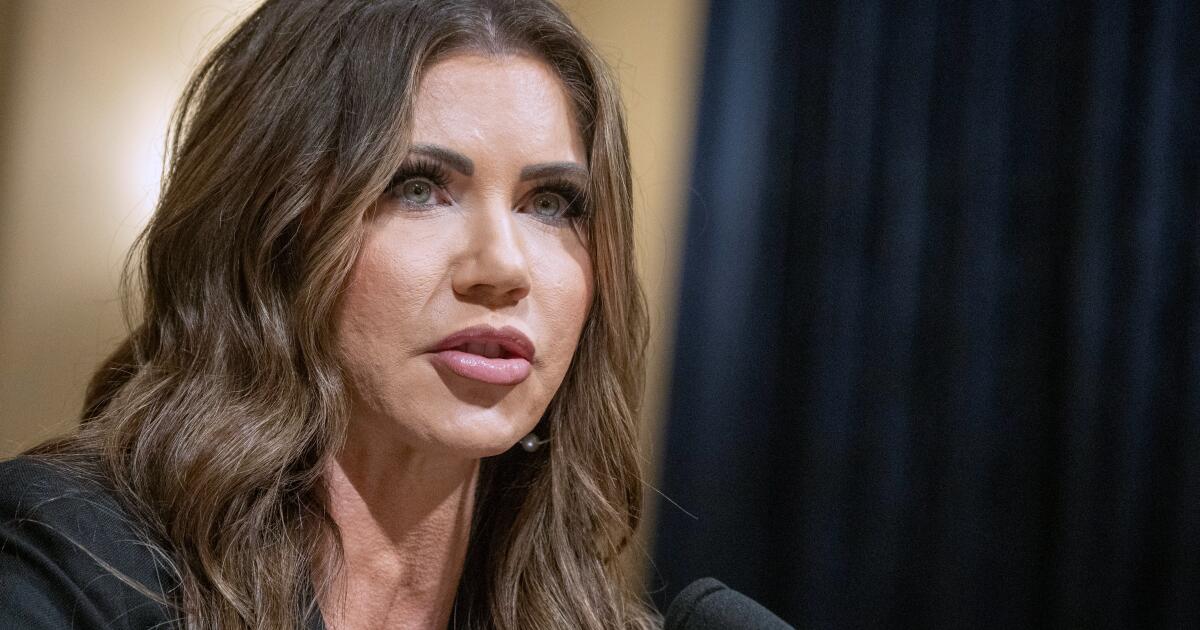The morning after a man hurled Molotov cocktails at a crowd of Jewish Americans in Boulder, Colo., Rabbi Noah Farkas celebrated the first day of Shavuot in the usual way: He read the Torah about the giving of the Ten Commandments to the Israelites at Mt. Sinai.
But Farkas, the president of the Jewish Federation of Greater Los Angeles, said what was supposed to be a holiday celebrating the establishment of law and order was marred by the weekend violence.
“The community is terrified,” Farkas said outside Temple Ramat Zion in Northridge.
“It’s remarkable to me that those who want to assault us are coming up with ever new and novel ways to do harm to us and to try to kill us.”
Twelve people between the ages of 52 and 88 were burned in the Colorado attack. A man — identified by law enforcement as Mohamed Sabry Soliman, 45, an Egyptian citizen who had overstayed his tourist visa — used a “makeshift flamethrower” to attack demonstrators marching peacefully in a weekly event supporting Israeli hostages in Gaza.
According to an FBI affidavit, the attacker yelled “Free Palestine!” — the same cry uttered by the suspect in a May 21 incident in which two Israeli Embassy aides were shot and killed outside the Capital Jewish Museum in Washington.
The back-to-back attacks have unnerved many Jewish Americans — particularly as they come just a month after a man set fire to the residence of Pennsylvania Gov. Josh Shapiro, who is Jewish. A suspect later said the fire was a response to Shapiro’s stance on Israel’s war on Gaza.
“We are in a completely new era for antisemitic violence in the United States,” said Brian Levin, the founder of the Center for the Study of Hate and Extremism and professor emeritus at Cal State San Bernardino. “We are now at a point of extraordinary national security concern with respect to protecting Jewish communities across the U.S. and worldwide.”
Anti-Jewish hate crimes, Levin said, hit record levels nationally in 2023 and 2024. In 2023, the last year that the FBI has available data, anti-Jewish hate crimes rose 63% to a record 1,832 incidents, Levin said. Last year, religious hate crimes were up significantly in major U.S. cities, Levin said, with anti-Muslim hate crimes rising 18%, and anti-Jewish ones rising for the fourth consecutive year, up 12% to a new record.
“Over the last decade, we’re seeing more mass casualties attacks and they’re becoming more frequent and more fatal,” Levin said. “It used to be that anti-Jewish hate crimes, unlike a lot of other hate crimes, were much more tied to property damage and intimidation. Now were seeing just a slew of high intensity types of attacks.”
The attacks in the U.S. come as United Nations officials and aid groups warn that the situation in Gaza has become increasingly dire, with Palestinians in Gaza on the brink of famine as Israel continues its 19-month military offensive against Hamas militants.
Two weeks ago, Israel agreed to pause a nearly three-month blockade and allow a “basic quantity” of food into Gaza to avert a “hunger crisis” and prevent mass starvation.
On Sunday, Gaza health officials and witnesses said more than 30 people were reported killed and 170 wounded as Palestinians flocked to an aid distribution center in the southern Gaza, hoping to obtain food. The circumstances were disputed. Witnesses said Israeli forces fired on crowds about 1,000 yards from an aid site run by a U.S.-backed foundation, but Israel’s military denied its forces fired at civilians.
Levin attributed the rise in violence in the U.S. to a number of factors, including the Israel-Hamas war and the “increasingly unregulated freewheeling online environment.” Horrifying imagery coming out of the Middle East, Levin said, was amplified on social media by those who ascribed responsibility to anyone who believes Israel has a right to exist, or is Jewish, or wanted hostages to be released.
“What happens is angry and unstable people not only find a home for their aggression, but a honed amplification and direction to it that is polished by this cesspool of conspiracism and antisemitism,” Levin said.
In Los Angeles’ Pico-Robertson neighborhood, the mood was subdued Monday as a smattering of Orthodox families made their way to services to observe Shavuot. Many kosher establishments were closed and armed guards flanked entrances to larger Jewish centers and temples.
On Pico Boulevard, a 25-year-old Orthodox man carried a prayer shawl close to his chest as he headed to a service at a temple just before noon. He had slept just a few hours after staying up all night reading the Torah.
Despite the news of the attack in Colorado, the man — who identified himself as Laser — carried an easy smile.
“It’s a joyous holiday,” he said.
The Colorado attack was horrifying, he said, but it was not anything new and paled in comparison with the feeling that descended on the Jewish community in Los Angeles and across the world after Oct. 7.
“It’s never good to see or read about those types of things,” he said. “We just pray for the ultimate redemption, for peace here, peace abroad, peace around the world.”
At Tiferet Teman Synagogue, a man standing at the door repeatedly apologized to a Times reporter, saying that he would not discuss the event that happened in Colorado.
“I’m not going to invite politics into the community,” he said. “God bless you all.”
Others observing the holiday declined to have their photo taken and many of the businesses were closed. A quiet buzz pervaded Pico Boulevard as Orthodox members of the community made their way to services, many of them trying their best to avoid eye contact.
A Persian Jewish man from Iran said he has always been hesitant about religious violence. The man, who declined to give his name, was on his way to service.
“You always have to keep your eyes open,” he said. “No matter where you are in the world.”
Noa Tishby, an Israeli-born author who lives in L.A. and is Israel’s former special envoy for combating antisemitism and delegitimization, said that many Jewish people were afraid to congregate.
“The Jewish community feels under siege,” she said. “People are removing their mezuzahs from their doorsteps. They’re removing Jewish insignia from themselves, removing their Star of David or hiding it. They’re afraid to go to Jewish events.”
Tishby said that the Colorado attacker appeared to be motivated by antisemitism: the views and beliefs of the victims didn’t matter.
“What if that particular woman that man tried to burn alive yesterday, what if she was a Bibi hater, would that appease him?” Tishby asked, using a nickname for Israeli Prime Minister Benjamin Netanyahu. “The answer is no. He doesn’t know what her political opinions are in America or in Israel. He just burned her because she was Jewish.”
Antisemitism, Tishby argued, was a shape-shifting conspiracy theory that had evolved into anti-Zionism.
“What happened is that the word Zionist is now a code name for Jew,” she said. “We have been warning for decades that anti-Zionism is the new face of antisemitism…. They’re taking all the hate, everything that’s wrong in the world right now, and they’re pinning it on the Jewish state.”
L.A. Mayor Karen Bass was quick to denounce the attack Sunday as “an atrocious affront to the very fabric of our society and our beliefs here in Los Angeles.” In a statement, she said she would call an emergency meeting at City Hall addressing safety and security across the city immediately after Shavuot.
“LAPD is conducting extra patrols at houses of worship and community centers throughout LA. Anti-Semitism will not be tolerated in this city,” she said.
After speaking to Bass on Sunday, Farkas said that he planned to meet in person with the mayor on Wednesday after the Shavuot holiday to have a “real, frank conversation” about antisemitism.
“There is a cycle that we go through where our hearts are shattered and yet we have to keep enduring,” Farkas said. “And it makes us call into question the commitment of our wider community and our government to the safety of the Jewish community.”
The Associated Press contributed to this report.
